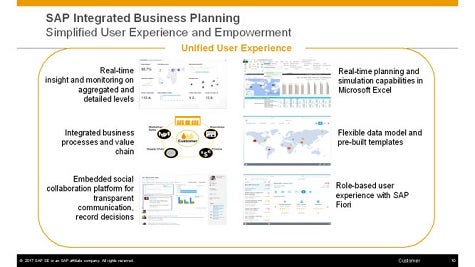As organizations look to become more agile in the age of digital business, one of the first issues they routinely encounter is how rigid their supply chains are. Most supply chains are designed to optimize the delivery of a handful of variations of a product at a time when customers are demanding more customization than ever.
To help organizations inject some flexibility into those supply chains, SAP has announced it has infused its SAP Business Planning Suite of software with a suite of machine learning algorithms it has packaged together under a SAP Clea brand name.
Martin Barkman, vice president and global head of digital business planning for SAP, says SAP Clea takes supply chains past predictive analytics to give organizations access to software that over time learns how to optimize the supply chain. Armed with that capability, Barkman says, organizations can then segment supply chains to drive additional business opportunities in the most efficient way possible.
“It will enable organizations to adopt new business models,” says Barkman.
Thanks to the rise of digital business initiatives, many organizations that build products are now marching down the path of mass customization. Each customer will be able to order some variant of a product that has been uniquely configured to suit their specific needs. Barkman says managing those processes at scale, however, will require relying more on machine learning algorithms to optimize the supply chain.
Many organizations have already turned manufacturing into a science. But much of the expertise used to achieve that level of sophistication resides with static models that need to be updated by an analyst to make a meaningful change. The difference now is that supply chain software will learn how to make those adjustments on its own to achieve the desired outcome.



